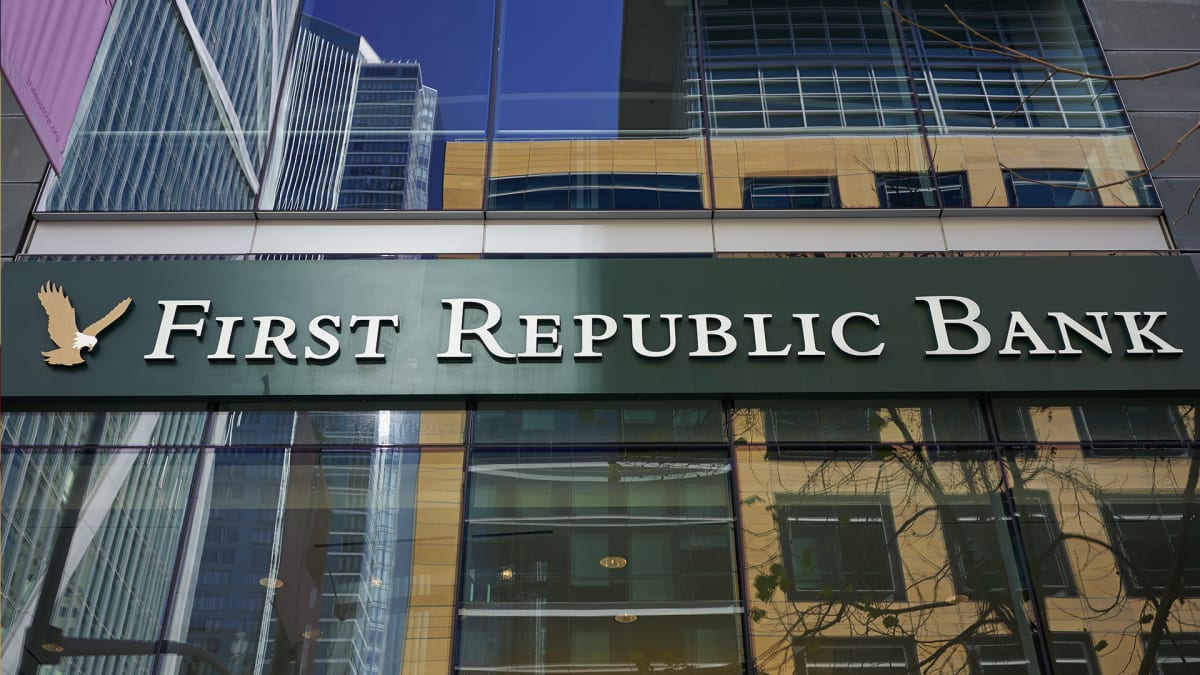
First Republic (FRC) shares hit a fresh record low Tuesday as investors reacted to a more than 40% decline in its overall deposit base that overshadowed a stronger-than-expected first quarter earnings report.
First Republic said earnings for the three months ending in March fell 57.5% from last year to $1.23 per share, but firmly topped analysts' estimates of 85 cents per share. Group revenues, the bank said, fell 13.6% to $1.209 billion, again beating forecasts of a $1.15 billion tally.
Overall deposits, however, were down $71.9 billion from end-December levels, or 41% to $104.5 billion, well below Street forecasts of around $145 billion. The $104.5 billion total, as well, includes the collective $30 billion that was added to the bank's deposit base by a collection of Wall Street lenders, lead by JPMorgan JPM, following the collapse of Silicon Valley Bank last month.
“With the stabilization of our deposit base and the strength of our credit quality and capital position, we continue to take steps to strengthen our business," said CEO Mike Roffler and chairman Jim Herbert said in a joint statement. "We remain fully committed to serving our communities, and we are grateful for the ongoing support of our clients and colleagues.”
First Republic shares were marked 28.8% lower in early afternoon trading Tuesday following last night's earnings release to change hands at $11.38 each. The stock hit a record low of $11.20 each earlier in the session.
The bank added that it is "pursuing strategic options to expedite its progress while reinforcing its capital position" while planning job cuts that would eliminate around 20% to 25% of its overall workforce.
The Wall Street Journal reported that JPMorgan CEO Jamie Dimon had lead a fresh round of talks with other big U.S. banks in an effort to provide further support, including potentially converting their $30 billion in deposits into a capital injection.
Standard & Poor's, which had lowered First Republic's credit rating into 'junk' status in the days following SVB's collapse, cut it by a further three notches to B+ on March 19, saying the bank continues to face "high liquidity stress with substantial outflows".
The ratings company also said the recent move by a consortium of 11 banks, lead by JPMorgan Chase JPM to add a collective $30 billion to its deposit base "may not solve the substantial business, liquidity, funding, and profitability challenges that we believe the bank is now likely facing."







